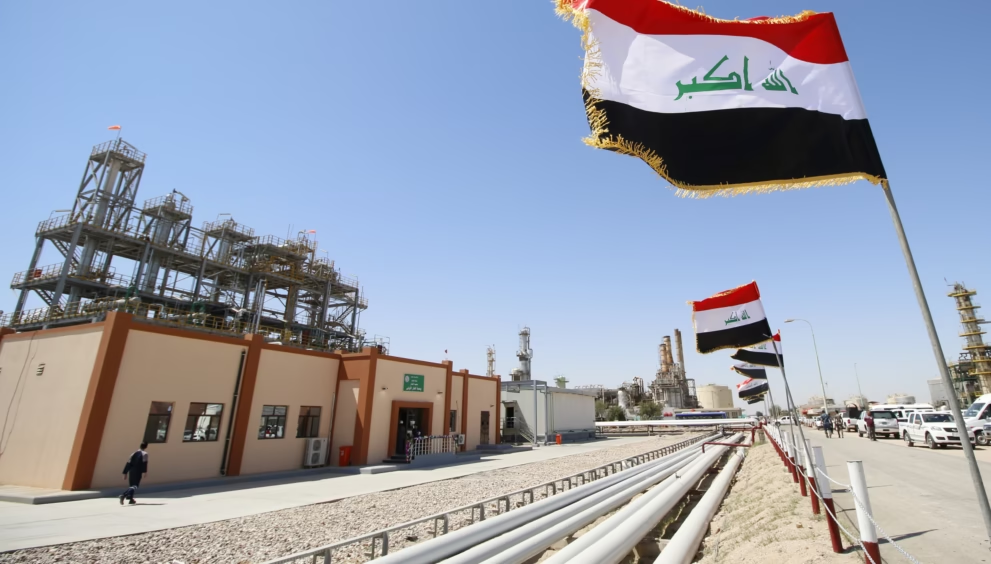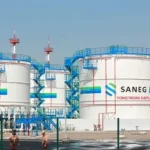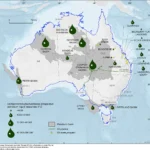Iraq’s Oil and Gas Companies Push for Growth Amid Geopolitical and Infrastructure Challenges

Iraq’s Oil and Gas Companies Push for Growth Amid Geopolitical and Infrastructure Challenges in 2025
September 15, 2025 – Baghdad, Iraq
Iraq’s oil and gas industry, a linchpin of the nation’s economy, is navigating a complex landscape in 2025, with major companies like Basra Oil Company (BOC), Iraq National Oil Company (INOC), and international partners such as TotalEnergies and ExxonMobil driving ambitious projects. Despite significant growth potential, these firms face geopolitical risks, infrastructure constraints, and the global energy transition. Insights from recent developments highlight how Iraq’s energy sector is striving to balance production expansion with modernization and sustainability efforts.
Production Growth and Market Expansion
Iraq’s oil production is projected to reach 4.8 million barrels per day (b/d) in 2025, up 3% from 2024, driven by major fields like Rumaila, West Qurna, and Zubair, according to the U.S. Energy Information Administration. Basra Oil Company, managing key southern fields, is spearheading output increases, with Rumaila producing 1.4 million b/d in 2024. The Iraqi oil and gas market is expected to grow by USD 68.5 billion from 2024 to 2029, at a compound annual growth rate (CAGR) of 2.2%, fueled by foreign investments and government initiatives to modernize infrastructure. However, a global oil surplus of 1.7 million b/d projected for early 2026 could pressure Brent crude prices, forecast to drop from $68 per barrel in August 2025 to $50 per barrel in Q1 2026, impacting Iraq’s export revenues.
Major Projects and Foreign Partnerships
The $10 billion Gas Growth Integrated Project (GGIP) at Basra’s Artawi field, led by TotalEnergies (45%), Basra Oil Company (30%), and QatarEnergy (25%), is a flagship initiative in 2025. The project includes a seawater treatment facility by Hyundai Engineering & Construction, a central oil and gas processing plant by ENKA, and a gas processing complex by China Petroleum Engineering & Construction Corporation, targeting 210,000 b/d of oil and 600 million cubic feet per day (MMcf/d) of gas. These developments aim to reduce gas flaring and boost domestic power generation, addressing Iraq’s chronic electricity shortages. ExxonMobil and BP are also active, with ExxonMobil investing $1 billion in West Qurna 1 to enhance recovery rates, currently at 500,000 b/d.
Infrastructure and Gas Capture Challenges
Iraq’s reliance on oil for energy, coupled with limited gas processing capacity, remains a bottleneck. The country flares approximately 17 billion cubic meters of associated gas annually, one of the highest rates globally, due to insufficient infrastructure. The GGIP’s gas processing plant is a step toward capturing 600 MMcf/d, supporting Iraq’s goal to supply power plants with domestic gas and reduce reliance on imported Iranian gas. Basra Oil Company’s $2 billion investment in pipeline upgrades in 2025 aims to improve transportation efficiency, though security concerns and aging infrastructure continue to hamper progress.
Geopolitical and Security Risks
Geopolitical tensions and security issues pose significant risks. The Kurdish region’s oil exports, managed by companies like DNO ASA, remain disrupted due to a halted pipeline to Turkey, costing Iraq $1 billion monthly in lost revenue. Recent attacks in the south, including drone strikes on oil facilities in Basra, have raised concerns about supply stability, though no major export disruptions have occurred in 2025. Iraq’s strategic position in OPEC+ and its alignment with BRICS+ nations, including Iran, are strengthening its global influence, but U.S. sanctions on Iranian oil could indirectly affect Iraq’s shared fields, such as West Karoun.
Energy Transition and Sustainability Efforts
Iraq is making tentative steps toward sustainability, driven by global pressure and domestic needs. TotalEnergies’ GGIP includes a 1,000 MW solar power project, set to deliver electricity to the grid in 2026, reducing oil dependency for power generation. Basra Oil Company is piloting carbon capture, utilization, and storage (CCUS) at the Rumaila field, targeting 1 million metric tons of CO2 capture annually by 2028. However, a 2025 industry survey indicates that only 30% of Iraqi oil executives prioritize CCUS due to high costs and technical challenges, limiting broader adoption.
Petrochemical and Downstream Opportunities
Iraq’s petrochemical sector is expanding, with demand for natural gas liquids (NGLs) projected to drive 18–20% of global oil demand by 2040. The Basra refinery, operated by INOC, is undergoing a $4 billion upgrade to increase capacity to 210,000 b/d, supporting domestic fuel needs and reducing imports. International firms like China Petroleum & Chemical Corporation are investing in petrochemical plants, with a new facility in Basra expected to produce 1 million metric tons of ethylene annually by 2027. Digital technologies, including AI-driven refining optimization, have cut costs by 8% at select facilities in 2024.
Workforce and Industry Consolidation
The sector is seeing workforce challenges, with 2,000 jobs cut in 2024–2025 as companies streamline operations amid global price pressures. Mergers and acquisitions are rising, with 55% of Iraqi oil firms planning deals in 2025 to access technology and improve efficiency, according to GlobalData. TotalEnergies’ acquisition of a stake in the Halfaya field for $500 million in 2024 exemplifies this trend. Government-backed retraining programs aim to transition 1,000 workers to renewable energy roles by 2027, aligning with Iraq’s energy diversification goals.
Outlook for 2025
Iraq’s oil and gas companies are poised for growth, driven by major projects and foreign partnerships, but face significant hurdles from geopolitical risks, infrastructure limitations, and global market dynamics. Firms like Basra Oil Company and TotalEnergies are leveraging technology and sustainability initiatives to enhance resilience. As Iraq aims to boost production and reduce flaring, its ability to navigate these challenges will shape its role in the global energy market through 2030.
- Oil Industry







